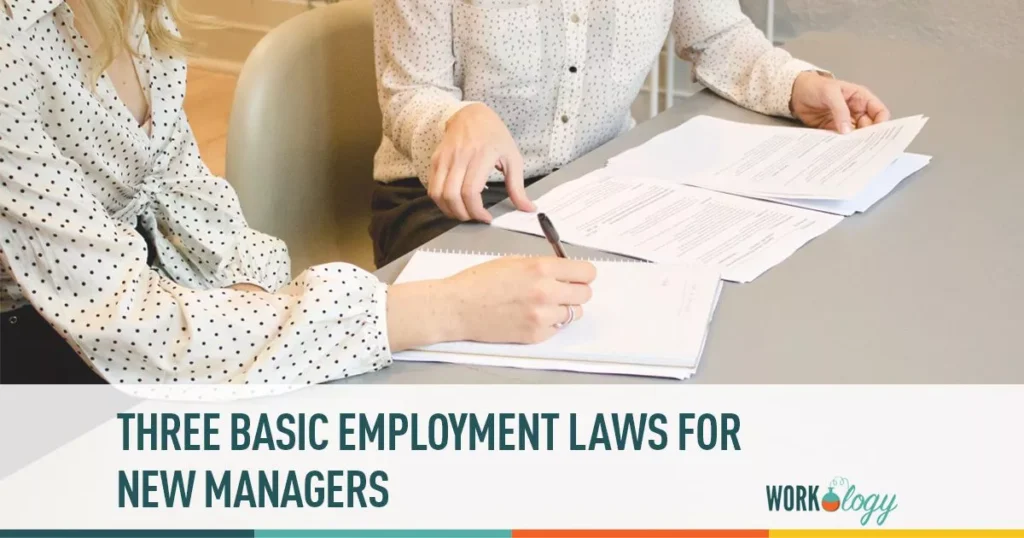One of the most crucial pieces of support that HR leaders are called on to provide is training new managers. This includes company-specific training on employee handbooks, general rules and other company standard operating procedures. One part of new manager training that is often overlooked is training on basic employment law. This includes Title VII, FLSA, and FMLA. We’ll guide you through all three here.
Title VII of the Civil Rights Act of 1964
Title VII is the 1964 Civil Rights Act employment law that protects employees from discrimination based on race, color, religion, sex, national origin or pregnancy status. The human resource teams’ role is to give the necessary support to new managers and prevent the company from lawsuits due to non-compliance situations. These are the groups that are covered and not covered by Title VII.
Title VII Covers the following groups:
• All companies and labor unions with 15 or more employees
• Employment Agencies
• State & Local Government
• Apprenticeship Programs
These are the groups not covered under Title VII:
• Federal Government Employees
• Independent Contractors
Family Medical Leave Act (FMLA)
This employment law (FMLA ) pertains to all public agencies, all public and private elementary and secondary schools, and companies with 50 or more employees. Employees eligible for FMLA are entitled to up to 12 weeks of unpaid leave each year for any of the following reasons:
• In the event an employee wants to give birth and care for a newborn child.
• For placement with the employee of a child for adoption or foster care;
• When an employee needs some time off to take care of an immediate family member with a severe health condition.
• When an employee cannot work due to a severe health condition and needs to take a medical leave, it is given.
For an employee to merit FMLA, they should have worked for at least twelve months over the past 12 months or an equivalent of at least 1,250 hours.
Time taken off work due to pregnancy complications can be counted against the 12 weeks of family and medical leave. The employee is protected by FMLA and should be returned to the same job position or level before they were granted leave.
The Fair Labor Standards Act (FLSA)
In simple terms, FLSA or Fair Labor Standards Act is a federal law establishing wage and hour standards for most public and private employers. Managers should learn the basics of the FLSA with the understanding that they will have support from their HR team.
It’s important to understand how the FLSA classifies employees. The FLSA makes two distinctions between an organization’s employees: exempt and non-exempt.
Exempt employees must be paid on a salary basis and must have exempt job duties. A salary basis means that the employee receives a predetermined salary regardless of the number of hours they work. As of January 1, 2020, the FLSA salary threshold is $36,568 per year (or $684 per week). The FLSA rules allow employers to use nondiscretionary bonuses and incentive payments (including commissions) that are paid annually to satisfy up to 10% of the standard salary threshold. Although some employers require exempt employees to track their hours worked, many do not. An exempt employee is not paid overtime wages for hours worked over 40 in a workweek.
Non-exempt employees must record their hours worked each workweek and must be paid overtime wages in an amount of 1.5 times their regular rate of pay for all hours over 40 in a workweek. Most nonexempt employees are paid by the hour, but some are paid a salary, or via other methods such as piece rates, commissions, or a combination of pay methods.
Related: How to Calculate FLSA Overtime Pay
Training for new managers should also include:
• Why is FLSA compliance important?
• How does a company comply with overtime rules?
• What are the requirements and limitations of non-exempt employees versus exempt?
• What is the role of the Fair Labor Standards Act (FLSA)?
• What are the penalties for FLSA non-compliance?
• What are the differences between exempt and non-exempt workers
• What are the timekeeping requirements in FLSA?
• What are the criteria for recording hours of work in FLSA?
• What are the set regulations regarding child labor?
• What are the rules for working overtime?
Workology’s new manager training is designed to help new supervisors hit the ground running regarding the basics of employment law. This training helps new managers understand how employment law works and when they should ask HR for assistance.










